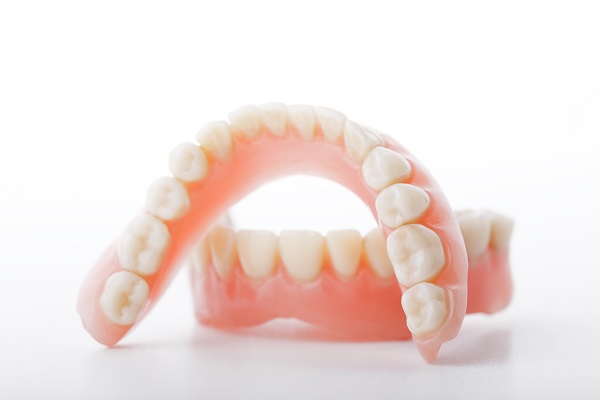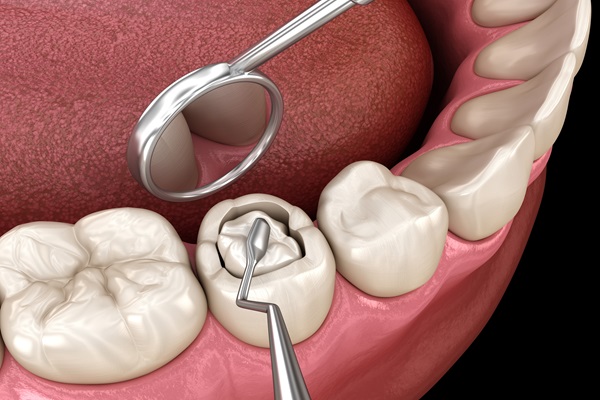What Are Full Mouth Dentures?[Implant-Supported Dentures]

When it comes to replacing all the teeth on one or both jaws, full mouth dentures are an effective option. The procedure is somewhat complicated because it requires a high level of precision and expertise, but it allows patients to regain their smiles as well as function. Learn more about full mouth dentures and how they are used to restore missing teeth.
The full mouth dentures process
When a patient has lost all the teeth on a dental arch, one of the most effective ways to restore teeth function is to get full mouth dentures supported by dental implants. This procedure is the closest option available to restore the appearance, function and comfort of natural teeth. A full mouth denture restoration with dental implants has multiple steps:
- Initial consultation involving diagnosis and planning, possibly including X-rays, CT scans, diagnostic mock-ups, smile design and virtual planning
- Surgical placement of six to eight dental implants in the upper jawbone and four to six implants in the lower jaw
- Placement of temporary dentures
- Placement of durable, natural-looking permanent dentures supported by dental implants.
During the procedure
Before getting the final set of dentures, the patient must get dental implants placed in the jawbone. Innovations in dental technology have made it possible to place fixed temporary dentures soon after placing the dental implants. This allows patients to get a new temporary smile in a single dental visit. The final permanent implant dentures will fully restore tooth functions and appearance. The dentist will typically take teeth impressions and send them to the dental lab that will create the new full mouth dentures.
The dentures will connect to the dental implants via an attachment device. The choice of attachment mechanism depends on the number of implants placed inside the jaw. The new denture can be tightened down with a metal bar clip or a ball-shaped anchor that allows the denture to snap on and off the implant. When the full dentures are ready, the dentist will connect it to the implants to complete the restoration process.
Maintaining full mouth dentures
Oral hygiene with these dentures is the same as caring for natural teeth. Patients must brush and floss regularly to keep their mouth in good shape. Also, regular visits to the dentist are essential. Implants are not susceptible to decay and can therefore last a long time. However, the supporting gum and jawbone can be affected by plaque accumulation, which can compromise oral health as well as implant stability.
Patients who deal with teeth clenching or grinding can request for nightguard to protect their teeth. The new dentures are vulnerable to damage same as natural teeth, which means patients must be careful of what they bite or chew on.
Benefits of full mouth dentures
Full mouth dentures supported by dental implants can be more cosmetically appealing and easier to maintain than regular dentures, and have fewer dietary restrictions. Dental implants can also prevent gum recession and bone loss that could cause facial distortion.
Final note
To learn more about full mouth dentures and how they are used to restore missing teeth, book an appointment for a consultation.
Request an appointment here: https://www.emergencydentistinorlando.com or call Maitland Square Dentistry at (407) 337-1112 for an appointment in our Maitland office.
Check out what others are saying about our services on Yelp: Read our Yelp reviews.
Related Posts
The lifespan of a dental filling is limited. Due to normal wear and tear, a replacement may be necessary. When a filling deteriorates or comes loose, your tooth loses the protection that it has against injury and decay and will be more vulnerable to dangerous bacteria. To avoid more dental issues in the future, you…
A dental crown can save a tooth that is in danger of extraction. Dental crowns serve a dual purpose. They reinforce the tooth structure and improve the appearance of the smile at the same time. This means that a dentist could recommend a crown as a treatment for tooth decay or injury. A cosmetic dentist…
The time and effort that go into fitting a dental crown suggest a permanent restoration. Maybe it is the fact that installing a dental crown often requires multiple dentist visits. It could be the permanence that comes with the removal of enamel before the placement of a crown. Dental crowns that sit on dental implants…
A dental crown is a versatile restoration that can be used to address a wide range of dental issues like a cracked, chipped, decayed, deformed, or broken tooth. The crown covers up the part of the tooth that is visible above the gums, protecting it from further damage and acids made by oral bacteria.The severity…


